Economist

The Economist urges regulators not to squander genetic revolution unfolding in agriculture and medicine
Thanks to great strides in fundamental research, biology is becoming ever more programmable. Two recent scientific advances show just how ...
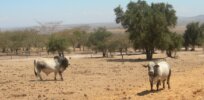
Kenyan cows produce 1/10th as much milk as those in Britain — If adopted, gene editing could dramatically improve quality and safety of African livestock
East Coast Fever (ECF) is rampant [in African countries]. ECF, which is caused by protozoan parasites spread by ticks, kills ...

Podcast: A decade after CRISPR’s discovery, medicine and farming are undergoing dramatic revolutions
In 2012, the discovery of the gene-editing tool CRISPR-Cas9 revolutionised scientists’ ability to modify DNA. Ten years on, host Alok ...

Podcast: Silicon Valley tech moguls spend billions developing technologies to help us live longer. Is this just a pipe dream?
Billions of dollars are being pumped into technologies that hope to reduce the effects of ageing. Host Alok Jha explores ...

Video: As medicine and agriculture increasingly embrace gene editing, should the public be concerned?
Technologies such as genetic modification and ‘CRISPR’ will cure hereditary diseases, produce disease-resistant crops and enable the breeding of malaria-free ...

Sniffing out Parkinson’s early? Chinese scientists have developed disease-detecting e-nose
A study published in ACS Omega, by Chen Xing and Liu Jun at Zhejiang University, in China, describes an invention ...

Studying the human brain is challenging. Here are two ethically controversial ways it can be done
Studying the human brain is hard.... Recently, however, two halfway-house approaches have been developed. One is to grow so-called brain ...

How traffic and other urban stresses adversely affect plants
That plants can be hampered indirectly by noise pollution has never been in doubt. Since most flowering species depend upon ...

BioNTech’s audacious plan to bring portable vaccine factories to Africa and the rest of the developing world
At the heart of its site in Marburg, Germany, BioNTech is putting the finishing touches on a new kind of ...

Some paralyzed patients are up and walking within a day thanks to these revolutionary implants
Four years ago Michel Roccati was involved in a motorcycle accident. He suffered what neurologists call a “complete” spinal-cord injury—he ...

Elixir of life? A $3 billion bet on reversing the process of cellular aging
Startups come and startups go. But few startups start with $3bn in the bank. Yet that is the fortunate position ...

Video: Will consumers embrace eating insects? 2 billion people globally already do
Around 2 billion people choose to eat insects on regular basis. More than 1,900 species are eaten across 130 countries ...
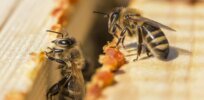
The biggest threat to honeybees is not pesticides but Varroa mites — and beekeepers may have accidentally fueled the plague
Propolis is a sticky material that bees make from a mixture of wax and resins gathered from a wide variety ...

To feed billions more people in coming decades, bugs will likely be on the global menu
Filling in the gaps in the world’s food web requires unlearning some tastes and preferences. Consider the insect. Around 1,900 ...

What’s on the menu in a climate-sensitive diet — and will we eat it?
What if people who shared the distaste for today’s food system could encourage the building, seed by seed and cell ...
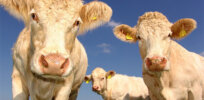
Genetics and chemistry could make cow meat and milk extinct
Henry Ford, an early industrialiser of plant-based milks as well as a carmaker, production-system innovator and anti-Semite, saw animals as ...
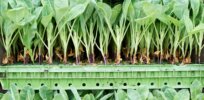
Vertical farming and sustainability: We can now grow fruits and vegetables in urban areas without soil or sunlight
Most vertical farms share a few attributes. One is a lack of soil. Their stacked rows of crops are grown ...

Precision fermentation: How humans harness microbe-based biochemistry to make food more delicious
Humans have been harnessing microbe-based biochemistry for food preservation since before history began. Without lactic-acid fermentation a bumper crop of ...
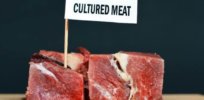
When will we reach a future in which meat no longer requires animal slaughter? There are still some barriers to that goal
Nearly 100 firms are vying to be the first to bring cultured meat to market. Select locations—including a private club ...

A post-pandemic economic boom is coming. History provides insight on how this surge might play out
Today, even as COVID-19 rages across poorer countries, the rich world is on the verge of a post-pandemic boom. Governments ...
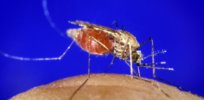
CRISPR gene editing on the cusp of adding new gene drive tools to control disease-carrying mosquitoes
[D]espite decades of effort, vaccines have, for many [diseases like malaria and dengue], proved tricky to develop. Better, then, to ...
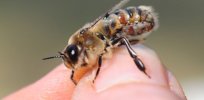
RNA technology brought us effective COVID vaccines. Next up: ‘Precisely targeted, environmentally-friendly’ techniques that dramatically reduce use of problematic chemicals
[RNA-based COVID vaccines let] a vaccine-recipient’s immune system learn to recognise a crucial part of the enemy before the real ...

Will we ever reach COVID ‘herd immunity’? ¾ of the population of the Brazilian Amazon capital Manaus has been infected but the coronavirus marches on
In September, a preprint appeared online with the startling results from a study of covid-19 antibodies in blood-bank samples from ...
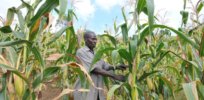
African farmers could boost crop yields with GMO seeds—if their governments would let them
An air of Malthusian gloom hangs over smallholder farmers in Sironko, in eastern Uganda. In the old days, they say, ...

A world without aches: First inklings of a drug that could eradicate chronic pain
After decades of research into the cellular basis of chronic pain, [pharmacologist Peter] McNaughton believes he has discovered the fundamentals ...
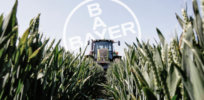
As glyphosate—cancer legal battle intensifies, Bayer faces questions whether it needs to split up to survive
The glyphosate lawsuits—and the political backlash—stem from a finding by a division of the World Health Organisation, which said in ...

Gut bacteria transfers could help relieve autism symptoms, research shows
What causes ASD has baffled psychiatrists and neurologists since the syndrome was first described, in the mid-20th century, by Hans Asperger and ...
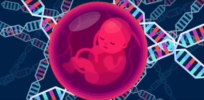
Does a future with genetic enhancements undermine ‘the idea that we are all equal’?
Sex is how humans propagate. But developments in genetic engineering might change this one day. “We are, in the future, ...

